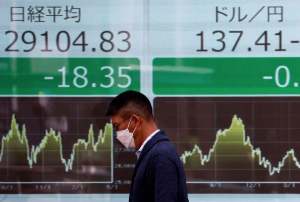(ATF) US chemicals giant Celanese declared force majeure on Thursday February 18, saying it was unable to deliver to Asia because of the severe weather conditions in Texas, becoming the latest victim of a storm system disrupting global supply chains.
A long list of companies around Texas and New Mexico have halted operations as they grapple with a rare deep freeze, which has killed nearly two dozen people and knocked out power to millions.
Celanese said its decision follows similar notices by its own suppliers and service providers in the Texas Gulf Coast. Its exports to the Americas and Europe are also affected.
Cameron, an important liquefied natural gas (LNG) supplier in the US, also declared force majeure. “We lost power from our electric utility on Monday [February 15] due to an issue with the transmission grid, but it has been restored to the site, and we are working to ensure we can safely restart operations,” a company spokesman said.
“The extreme weather is not behind us as Cameron LNG in Louisiana had to declare a force majeure on cargo loadings,” Edward Moya, senior market analyst at the Oanda brokerage in New York, said. “Another ice storm could occur tonight and that could keep the pressure on Texas grid for a few more days.”
The chemicals company said sustained below freezing temperatures at the company’s and its partners’ plants have made Celanese unable to get natural gas, electricity, industrial gas, and other raw materials it needs to operate the facilities.
The company said it would announce when production resumes.
Occidental also issued a force majeure to buyers as a result of the supply disruptions.
Freezing or near-freezing conditions are expected to last until Friday. This suggests that disruptions to crude oil output may linger for at least a couple of days more. On the refinery side, some refiners have also issued force majeure notices, with their operations disrupted as a result of the storm and power outages. It Is estimated that around 3 million barrels per day of refining capacity has been idled as a result.
CRUDE INVENTORIES SHRINK
Crude oil prices turned positive after a very bullish US Energy Information Agency inventory report that sent stockpiles to the lowest level in a year and the largest increase in exports since 1993. The weekly crude oil inventory report posted a 7.25-million-barrel draw, a bigger drop than the eyed 2.4 million barrel estimate, and the prior 6.65-million barrel decline in stockpiles.
This week’s EIA data does not include any impact from the Texas storm but suggests inventories will continue to decline over the coming weeks. “The havoc over the next couple of readings will see massive disruptions of almost 40% of US output,” said Moya. “The short-term hits to both crude consumption and US production do not really derail the supercycle oil trade.”
White House Homeland Security adviser Liz Sherwood-Randall said at least one million people lacked power as a result of the storm and blamed climate change. “The extreme weather events that we’re experiencing this week … do yet again demonstrate to us that climate change is real and it’s happening now, and we’re not adequately prepared for it,” she said.
In a related development, semiconductor makers with plants in Texas have begun to warn of production disruptions and idled factories. Operators with plants in Austin – the state’s capital and tech hub – including NXP, Samsung and Infineon have all come under pressure.
“We expect global semiconductor shortages will incrementally worsen due to the ongoing power outages in Austin, with the impact most obvious in legacy PC components and automotive sector chips,” Jon Gordon, a strategist with UBS in Hong Kong, said.
With reporting by Agence France-Presse and Reuters
























